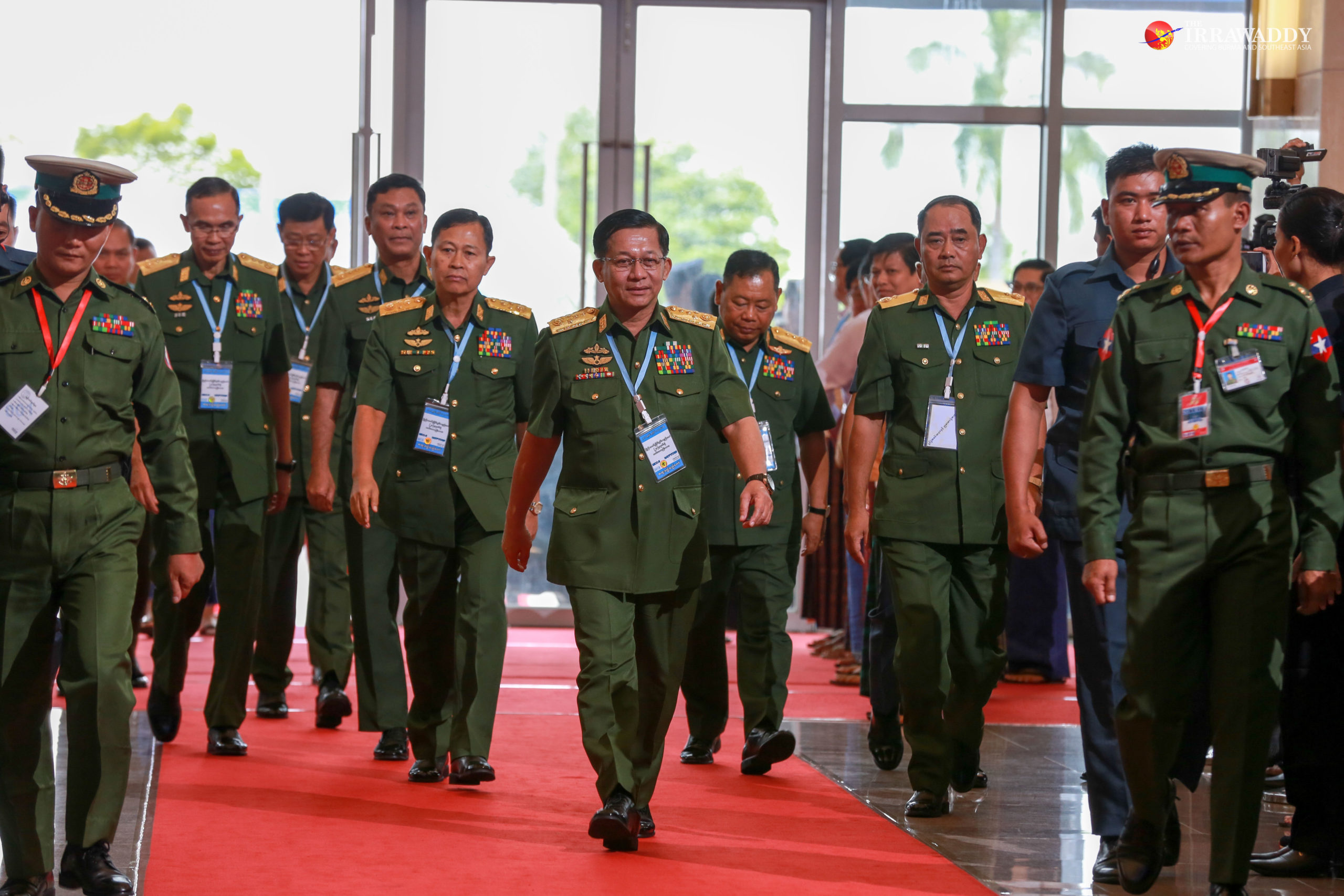As long as the current breed of military generals survives in Myanmar, the country will be forced to live with overturned election results, the rejection of the people’s democratic choice and the ousting of elected governments at the point of a gun. On Monday night, the most recent junta formed by these generals officially announced the annulment of the results of the 2020 general election.
This is the third time the Tatmadaw, Myanmar’s military, has revoked the results of an election since the generals first seized power in 1962.
The three top generals from successive generations have turned this undemocratic path into a military tradition. General Ne Win’s coup d’état in 1962 nullified the result of the 1960 election, and Senior General Than Shwe and his deputies did the same for the result of the 1990 vote. This year, Senior General Min Aung Hlaing has done it again, sweeping aside the result of the 2020 general election.
Such dictatorial power seizures have become an all-too-familiar step in a vicious circle perpetuated by the generals over the past 59 years.
Each of them has systematically destroyed the country’s democratic system at different times by abolishing the results of elections, which underpin democracy.
As long as these generals meddle in politics, Myanmar will find it impossible to become a democratic nation despite the strong will and unyielding struggle of the entire population.
In multiple elections stretching over decades, Myanmar’s 55 million people have repeatedly demonstrated their clear desire for the generals to stay away from politics.

In the last election in November 2020, the majority of the 27 million citizens who cast ballots backed the National League for Democracy (NLD) headed by the country’s now ousted de facto leader, Daw Aung San Suu Kyi. As in every previous election it had contested over the previous three decades, the NLD won a landslide victory.
The voters cast their ballots with their hearts, but their hearts were crushed by Min Aung Hlaing. That’s the way his predecessors did it in 1962 and 1990.
After three such bullying, undemocratic rejections of the people’s desire, there can be no reconciliation with these violators of the national will.
“Forgive” and “forget” are no longer in the people’s vocabulary. An already sour relationship has hardened into irreconcilable hostility. There is no longer room for talking, only fighting, as seen in the actions of the many protesters who have taken up arms in recent months.
The people, in reality, have been aware since the coup that one of the main aims of Min Aung Hlaing was to reject their vote for the NLD, disband the party and ultimately to maintain power—either under the military or a new system dominated by its generals—forever.
Everything coup maker Min Aung Hlaing has done from the Feb. 1 coup to this final official rejection of the election result has served to close the door to reconciliation between the military and society, or politically speaking, between the NLD or any civilian government and the military leadership.
Perhaps, those advocates or politicians who promoted a relationship between the civilian NLD government and the military over the past decade will now understand that their attempts failed and there seems to be no room for such a relationship in the future, unless a new breed of generals who can accept and at least follow basic democratic norms emerges in the military leadership.
Otherwise, the idea of a civilian-military relationship in Myanmar is just a delusion.
In reality, there has never been such a relationship.
There have never been any leading generals who sincerely accept basic democratic norms like elections, or the need to respect their results as the people’s will. Over the past decade, some observers, including even politicians who had contact with high-ranking military officials, argued that some generals would be moderate. Now, however, their arguments appear threadbare, lacking a scrap of tangible evidence. Perhaps those military officials just put on too good of a show, while their apologists were just too trusting.
As long as it is run by the breed of generals who have led it since 1962 (in other words, from the Ne Win era to the Min Aung Hlaing era), the military will never accept democracy. And there won’t be any reconciliation between the military and the people.
Principally, or simply, the military’s role as an institution is to defend or protect the nation and its people. A standard military is not supposed to get involved in politics. That’s a basic principle that most societies grasp—but not so the generals of this country. They have always involved themselves in politics at all levels, interfering in the people’s decisions and rights in ways both big and small, including the right to vote.
Why? The generals are addicted to absolute power and the economic benefits derived from it, which have made their families, relatives and associates enormously rich. They have become the elite of all elites in this poor society.
What these generals are too stupid to see is that all they have succeeded in doing is destroying the reputation of their own institution, making the military the most hated institution in the country. They don’t see that their actions can only lead to their own downfall.
The junta’s formal rejection of their votes on Monday night will positively embolden the Myanmar people to make good on their motto: “Down with the military regime.”
Naing Khit is a commentator on political affairs.
You may also like these stories:
Ceasefire Broken in Chin State as Myanmar Junta Troops Clash with Civilian Resistance Fighters
As Myanmar Regime Mishandles COVID-19, More Than 2,000 People Die in Three Weeks
Heavy Job Losses in Myanmar Since Coup: ILO Report

















